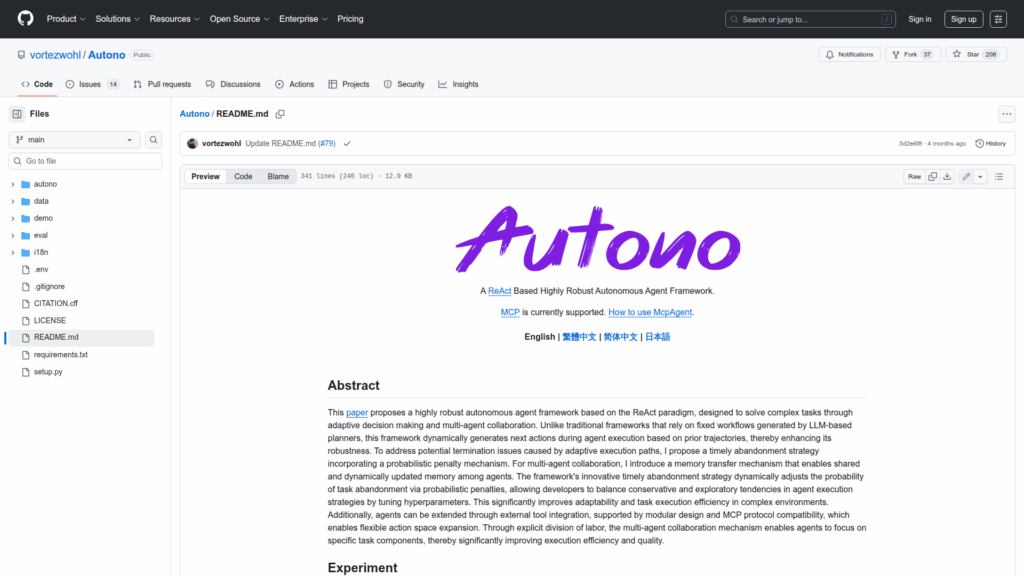Autono
Basic Information
Autono is a ReAct-based autonomous agent framework for building robust single- and multi-agent systems that dynamically generate next actions during execution. It implements an adaptive execution model that produces actions based on prior trajectories rather than fixed planner workflows. The repository provides a Python API to instantiate agents, declare abilities via decorators, customize personalities, and modify abilities at runtime. It includes a timely abandonment strategy using probabilistic penalties to manage termination behavior and a memory transfer mechanism to enable shared, dynamically updated memory among collaborating agents. The design is modular and supports external tool integration, with explicit compatibility for the Model Context Protocol (MCP) to access tools over stdio, HTTP SSE, or WebSocket.








